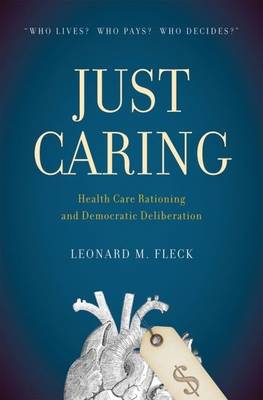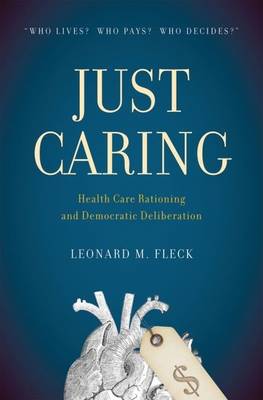
- Afhalen na 1 uur in een winkel met voorraad
- Gratis thuislevering in België vanaf € 30
- Ruim aanbod met 7 miljoen producten
- Afhalen na 1 uur in een winkel met voorraad
- Gratis thuislevering in België vanaf € 30
- Ruim aanbod met 7 miljoen producten
Zoeken
€ 105,95
+ 211 punten
Omschrijving
What does it mean to be a "just" and "caring" society when we have only limited resources to meet unlimited health care needs? Do we believe that all lives are of equal value? Is human life priceless? Should a "just" and "caring" society refuse to put limits on health care spending? In Just Caring, Leonard Fleck reflects on the central moral and political challenges of health reform today. He cites the millions of Americans who go without health insurance, thousands of whom die prematurely, unable to afford the health care needed to save their lives. Fleck considers these deaths as contrary to our deepest social values, and makes a case for the necessity of health care rationing decisions. The core argument of this book is that no one has a moral right to impose rationing decisions on others if they are unwilling to impose those same rationing decisions on themselves in the same medical circumstances. Fleck argues we can make health care rationing fair, in ways that are mutually respectful, if we engage in honest rational democratic deliberation. Such civic engagement is rare in our society, but the alternative is endless destructive social controversy that is neither just nor caring.
Specificaties
Betrokkenen
- Auteur(s):
- Uitgeverij:
Inhoud
- Aantal bladzijden:
- 480
- Taal:
- Engels
Eigenschappen
- Productcode (EAN):
- 9780195128048
- Verschijningsdatum:
- 30/03/2009
- Uitvoering:
- Hardcover
- Formaat:
- Genaaid
- Afmetingen:
- 234 mm x 157 mm
- Gewicht:
- 805 g

Alleen bij Standaard Boekhandel
+ 211 punten op je klantenkaart van Standaard Boekhandel
Beoordelingen
We publiceren alleen reviews die voldoen aan de voorwaarden voor reviews. Bekijk onze voorwaarden voor reviews.











